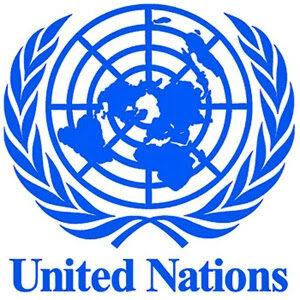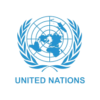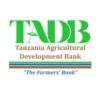Legal Officer at United Nations
Job Overview

Legal Officer at United Nations
Legal Officer at United Nations
United Nations (UN)
Arusha
Org. Setting and Reporting
The post is located in the Chambers Legal Support Section of the International Residual Mechanism for Criminal Tribunals (IRMCT), Arusha Branch. The incumbent will work under the direction of the Judge(s) in assigned cases and will report to the Senior Legal Officer(s).
Responsibilities
The Legal Officer is responsible for providing legal support with respect to the mandated residual functions, including: providing specialized legal advice on substantive and procedural questions of considerable complexity; providing legal support to Senior Legal Officers and Judges; conducting extensive legal research and analysis, preparing legal memoranda and studies on various legal issues in international criminal law, international humanitarian law, human rights law, public international law, and comparative law; drafting and editing judicial documents and contributing substantially to the preparation of orders, decisions, and judgements; providing leadership to teams that support the trial and/or appeal phases, and supervising the work of junior legal officers on specific projects, as required; maintaining files on the Mechanism’s practice and development and monitoring relevant developments in international law; serving on various standing boards, committees, ad hoc working groups and task forces, as required.
Competencies
Professionalism: Shows pride in work and in achievements. Demonstrates professional competence and mastery of subject matter. Is conscientious and efficient in meeting commitments, observing deadlines and achieving results. Is motivated by professional rather than personal concerns. Shows persistence when faced with difficult problems or challenges; remains calm in stressful situations. Communication: Speaks and writes clearly and effectively. Listens to others, correctly interprets messages from others and responds appropriately. Asks questions to clarify, and exhibits interest in having two-way communication. Tailors language, tone, style and format to match the audience. Demonstrates openness in sharing information and keeping people informed. Planning and organizing: Develops clear goals that are consistent with agreed strategies. Identifies priority activities and assignments; adjusts priorities as required. Allocates appropriate amount of time and resources for completing work. Foresees risks and allows for contingencies when planning. Monitors and adjusts plans and actions as necessary. Uses time efficiently. Leadership: Serves as a role model that other people want to follow. Empowers others to translate vision into results. Is proactive in developing strategies to accomplish objectives. Establishes and maintains relationships with a broad range of people to understand needs and gain support. Anticipates and resolves conflicts by pursuing mutually agreeable solutions. Drives for change and improvement; does not accept the status quo. Shows the courage to take unpopular stands. Provides leadership and takes responsibility for incorporating gender perspectives and ensuring the equal participation of women and men in all areas of work. Judgement/decision making: Identifies the key issues in a complex situation, and comes to the heart of the problem quickly. Gathers relevant information before making a decision. Considers positive and negative impacts of decisions prior to making them. Takes decisions with an eye to the impact on others and on the Organization. Proposes a course of action or makes a recommendation based on all available information. Checks assumptions against facts. Determines that the actions proposed will satisfy the expressed and underlying needs for the decision. Makes tough decisions when necessary.
Education
- Advanced university degree (Master’s degree or equivalent) in law, preferably with specialization in criminal law or international law.
- A first level university degree in combination with two (2) additional years of qualifying experience may be accepted in lieu of an advanced university degree.
Work Experience
- Minimum of seven (7) years of progressively responsible professional legal experience, at either the national or international level, with experience in criminal law, international law or humanitarian law is required.
- Previous experience supporting Judges at the Mechanism is desirable Experience working at UN International Criminal Tribunals is desirable
Languages
- English and French are the working languages of the Mechanism.
- For the post advertised, fluency in oral and written English is required. Working knowledge of French is desirable.
Assessment
- Previously rostered candidates are not subject to any further assessment and as such, will not be invited for such an assessment.
Special Notice
The United Nations is committed to achieving 50/50 gender balance and geographical diversity in its staff. Female candidates are strongly encouraged to apply for this position. This “Recruit from Roster” job opening is only open to roster applicants who are already placed on pre-approved rosters, following a review by a United Nations Central Review Body. Only roster applicants who were placed on rosters with similar functions at the same level are considered to be eligible candidates. Eligible applicants receive an email inviting them to apply. Rostered applicants are encouraged to apply only if they are interested and available to take up the position at the duty station/s specified in the Job Opening. Applying to this job opening carries an expectation to accept the offer, if selected. The appointment is limited to the Mechanism. Appointment of the successful candidate to this position will be limited to the initial funding of the post. Extension of the appointment is subject to the extension of the mandate and/or the availability of funds. As the International Tribunals are not integrated in the Secretariat, UN Staff Members serve on assignment or secondment from their parent department/office if selected. Appointments of staff members in the United Nations are subject to the authority of the Secretary-General. Staff Members are expected to move periodically to new functions in accordance with established rules and procedures, and may in this context be reassigned by the Secretary-General throughout the Organization based on the changing needs and mandates. At the United Nations, the paramount consideration in the recruitment and employment of staff is the necessity of securing the highest standards of efficiency, competence and integrity, with due regard to geographic diversity. All employment decisions are made on the basis of qualifications and organizational needs. The United Nations is committed to creating a diverse and inclusive environment of mutual respect. The United Nations recruits and employs staff regardless of gender identity, sexual orientation, race, religious, cultural and ethnic backgrounds or disabilities.
United Nations Considerations
According to article 101, paragraph 3, of the Charter of the United Nations, the paramount consideration in the employment of the staff is the necessity of securing the highest standards of efficiency, competence, and integrity. Candidates will not be considered for employment with the United Nations if they have committed violations of international human rights law, violations of international humanitarian law, sexual exploitation, sexual abuse, or sexual harassment, or if there are reasonable grounds to believe that they have been involved in the commission of any of these acts. The term “sexual exploitation” means any actual or attempted abuse of a position of vulnerability, differential power, or trust, for sexual purposes, including, but not limited to, profiting monetarily, socially or politically from the sexual exploitation of another. The term “sexual abuse” means the actual or threatened physical intrusion of a sexual nature, whether by force or under unequal or coercive conditions. The term “sexual harassment” means any unwelcome conduct of a sexual nature that might reasonably be expected or be perceived to cause offence or humiliation, when such conduct interferes with work, is made a condition of employment or creates an intimidating, hostile or offensive work environment, and when the gravity of the conduct warrants the termination of the perpetrator’s working relationship. Candidates who have committed crimes other than minor traffic offences may not be considered for employment. Due regard will be paid to the importance of recruiting the staff on as wide a geographical basis as possible. The United Nations places no restrictions on the eligibility of men and women to participate in any capacity and under conditions of equality in its principal and subsidiary organs. The United Nations Secretariat is a non-smoking environment. Reasonable accommodation may be provided to applicants with disabilities upon request, to support their participation in the recruitment process. By accepting a letter of appointment, staff members are subject to the authority of the Secretary-General, who may assign them to any of the activities or offices of the United Nations in accordance with staff regulation 1.2 (c). Further, staff members in the Professional and higher category up to and including the D-2 level and the Field Service category are normally required to move periodically to discharge functions in different duty stations under conditions established in ST/AI/2023/3 on Mobility, as may be amended or revised. This condition of service applies to all position specific job openings and does not apply to temporary positions. Applicants are urged to carefully follow all instructions available in the online recruitment platform, inspira, and to refer to the Applicant Guide by clicking on “Manuals” in the “Help” tile of the inspira account-holder homepage. The evaluation of applicants will be conducted on the basis of the information submitted in the application according to the evaluation criteria of the job opening and the applicable internal legislations of the United Nations including the Charter of the United Nations, resolutions of the General Assembly, the Staff Regulations and Rules, administrative issuances and guidelines. Applicants must provide complete and accurate information pertaining to their personal profile and qualifications according to the instructions provided in inspira to be considered for the current job opening. No amendment, addition, deletion, revision or modification shall be made to applications that have been submitted. Candidates under serious consideration for selection will be subject to reference checks to verify the information provided in the application. Job openings advertised on the Careers Portal will be removed at 11:59 p.m. (New York time) on the deadline date.
No Fee
THE UNITED NATIONS DOES NOT CHARGE A FEE AT ANY STAGE OF THE RECRUITMENT PROCESS (APPLICATION, INTERVIEW MEETING, PROCESSING, OR TRAINING). THE UNITED NATIONS DOES NOT CONCERN ITSELF WITH INFORMATION ON APPLICANTS’ BANK ACCOUNTS.





